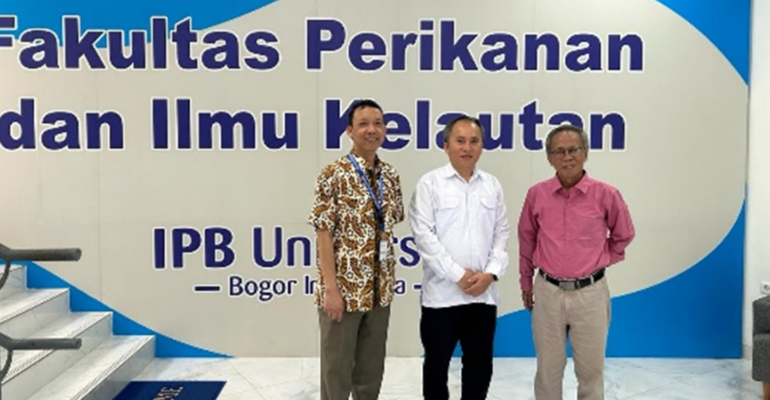Director of Environment and Disaster Management IKN Visits MSP Department FPIK IPB University

Dr Onesimus Patiung, Director of Environment and Disaster Management for the Indonesian Capital City (IKN) visited the Department of Water Resources Management (MSP) Faculty of Fisheries and Marine Sciences (FPIK) IPB University.
During this short visit, Dr Ones entrusted the task to Prof Hefni Effendi, the Chairman of the MSP Department, to provide input on the IKN Environmental Status document which is currently being created by the IKN Authority in collaboration with the Asian Development Bank (ADB).
“In general, Environmental Status (SLH) provides a comprehensive picture of the baseline condition of the environment before the IKN was built and when the IKN is currently being built simultaneously and quite massively, covering the dry season and the rainy season,” said Prof Hefni recently.
Prof Hefni continued, the initial environmental conditions that will be used as benchmarks for the IKN’s environmental baseline must contain various environmental aspects which include air, air, land, geology, hydrology, environmental terrestrial and aquatic biological aspects, socio-economic and cultural aspects of society, including environmental terrestrial and aquatic biological aspects, socio-economic and cultural aspects of society, including environmental terrestrial and aquatic biological aspects, behavior and livelihood of the Dayak traditional community, health aspects and potential disasters.
On the occasion of this meeting, Prof Yusli Wardiatno, who accompanied the Chairman of the MSP Department, offered the possibility of collaboration that could be developed between the MSP Department and IKN, namely related to the concept of managing inland waters such as rivers, lakes, and reservoirs spread across IKN, as well as the concept of managing coastal and marine areas in Balikpapan Bay and coastal-sea waters which are part of the IKN area.
“With this initial concept for managing inland, coastal, and marine waters, it is hoped that IKN will have a macro picture of future plans for the conservation of aquatic ecosystems at IKN. Hopefully we don’t repeat the same thing that happened on the Citarum River, which was once described as the worst and dirtiest river by a number of international media,” said Prof Yusli.
At the end of his visit, Dr Ones hoped that input from IPB University on the IKN environmental status document would be a breakthrough that could reach the latest needs and future trends in urban management of the IKN environment which carries the concept of urban forests. (HEF/LP) (IAAS/HSB)



